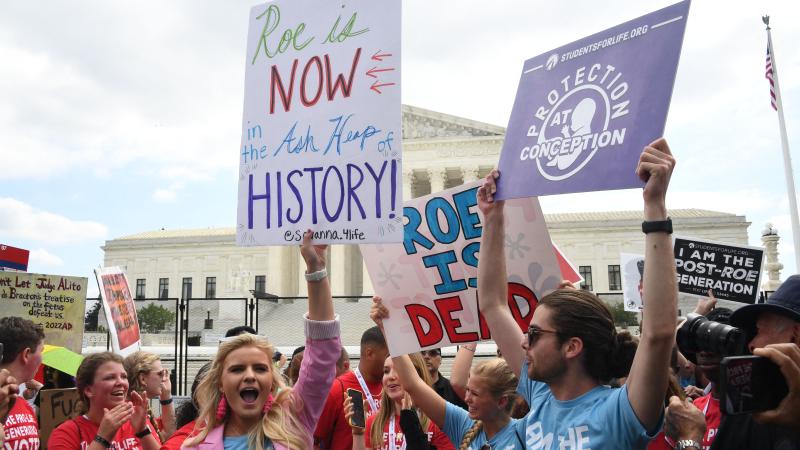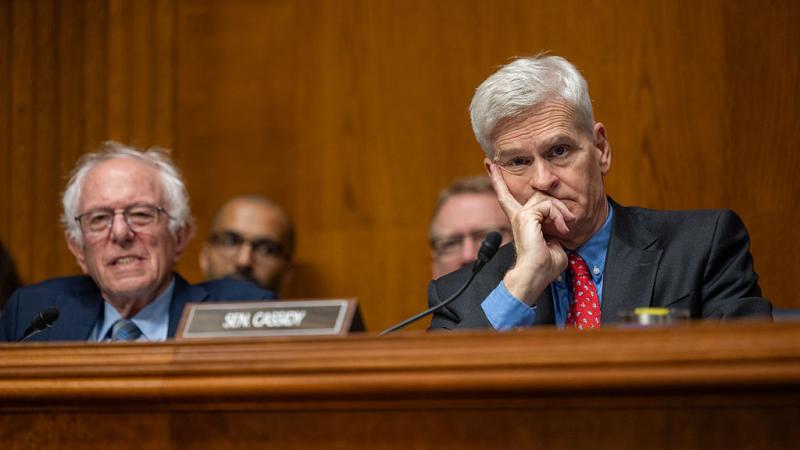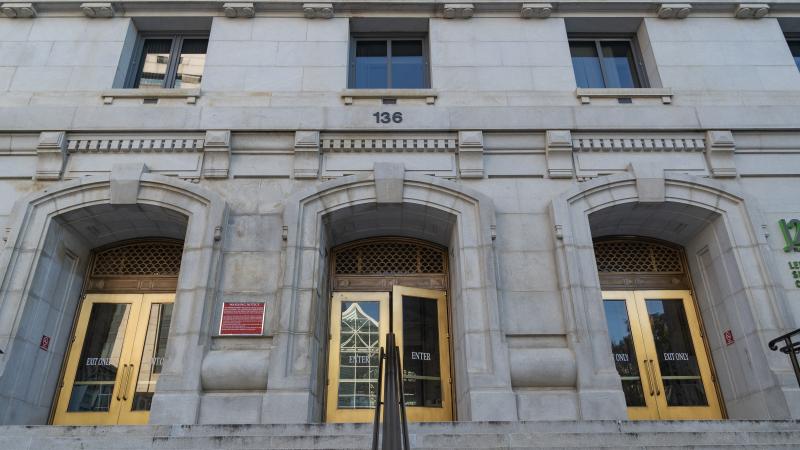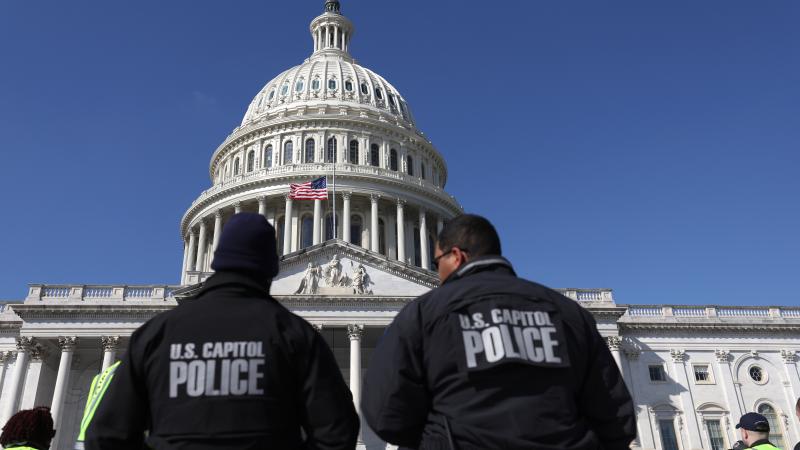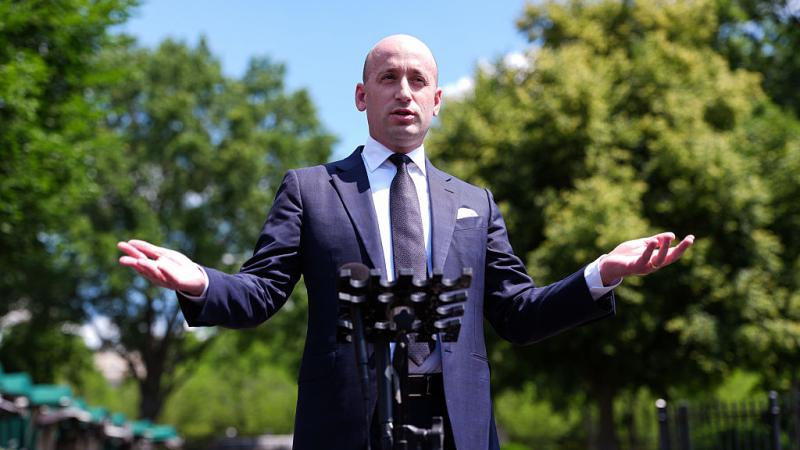First federal court permanently blocks ban on 'abortion pill reversal,' in culture-war Colorado
Colorado medical board's own expert contradicted its "conclusory assertion" that "research supports" other off-label uses of natural pregnancy hormone progesterone, which the state promotes for medicalized gender transitions.
Colorado has served as ground zero for legal fights over religious freedom versus public accommodations law for more than a decade, with the Supreme Court prohibiting religious animus against Jack Phillips for refusing to make same-sex wedding cakes and punishment of Lorie Smith for refusing to design such websites based on their Christian faith.
It's also the setting for a pending SCOTUS showdown over state bans on talk therapy for minors that does not affirm same-sex attraction or gender identity.
Now the Centennial State may complete the trifecta as a hub for settling the First Amendment rights of pro-life pregnancy centers, with a federal judge permanently blocking its statutory ban (SB 23-190) on so-called abortion pill reversal as applied to the challengers, nearly two years after a preliminary injunction, with a fully developed court record.
Public interest law firms representing the plaintiffs and intervenor in the Colorado challenge told Just the News it's the first permanent injunction against a prohibition on promoting or prescribing supplemental progesterone, a natural pregnancy hormone, to counteract progesterone-blocking mifepristone before taking womb-evacuating misoprostol.
Ban forces women to have 'abortions against their will'
The victory for Bella Health and Wellness and certified nurse midwife Chelsea Mynyk, who intervened in Bella's suit, boosts a resurgent pro-life movement coming off a sobering three years since the Dobbs ruling overturned federal abortion rights.
After red states approved abortion protections, SCOTUS rejected a mifepristone challenge by doctors and the Trump administration continued its predecessor's loosened mifepristone rules, even fighting red-state attempts to restrict it, the tide started turning this summer.
A federal appeals court upheld West Virginia's strict abortion law against a challenge by generic mifepristone maker GenBioPro, SCOTUS laid the groundwork for states to defund Planned Parenthood and Missouri Attorney General Andrew Bailey sued the abortion giant for allegedly deceiving women about the dangers of mifepristone.
The Department of Veterans Affairs proposed ending abortion coverage in medical plans and SCOTUS ordered a New York appeals court to reconsider a state mandate on abortion coverage in insurance plans by religious employers that serve those outside their religion, in light of its religious freedom ruling for a Catholic Charities Wisconsin affiliate.
"Colorado should never have tried to stop Bella from helping pregnant women who want to choose life for their babies," forcing them to "have abortions against their will” by banning reversal, said the Catholic clinic's lawyer, Rebekah Ricketts of Becket.
"The court is right to rule that the state can’t force women to follow through with a chemical abortion when a safe alternative is available – one that Chelsea and the pro-life plaintiffs in this case can skillfully provide," said intervenor Mynyk's lawyer Kevin Theriot at Alliance Defending Freedom.
While some Democratic lawmakers and attorneys general claim abortion pills cannot be reversed, and thus the progesterone protocol is a deceptive trade practice, Yale School of Medicine director of reproductive and placental research Harvey Kliman told The New York Times in 2017 he'd recommend the protocol to his daughter if she accidentally took mifepristone.
Progesterone for everything but abortion pill reversal?
Rather than give up and settle, as it did with Christian graphic designer Smith for $1.5 million, Colorado kept fighting for its abortion pill reversal ban after President Trump-nominated Judge Daniel Domenico blocked the law as applied to Bella and Mynyk in October 2023.
"The parties have now completed discovery and submitted cross-motions for summary judgment" and the evidence "largely confirms" what was known nearly two years ago, he said: "While the clinical efficacy of abortion pill reversal remains debatable, nobody has been injured by the treatment and a number of women have successfully given birth after receiving it."
While Bella "does not expressly advertise that it does not offer abortion services" under its promise of a "full continuum of care," it expressly advertises abortion pill reversal on its website and social media, even calling it a "religious obligation," the judge said. Mynyk similarly is "religiously obligated to offer APR so long as she has the means and ability to do so."
The parties agree on "some of the basic factual predicates which lie behind these disputes" on the safety and efficacy of APR, including the widespread use of progesterone for "multiple indications in obstetrics and gynecology," most of them off-label like APR, he said.
These include for "assisted reproductive technology cycles, during in vitro fertilization, and in frozen embryo transfer treatments," and Colorado itself promotes progesterone for another hot-button legal dispute, "gender-affirming care," Domenico said.
Credible safety fears ignored for medicalized gender transitions
The meat of the ruling concerns section three of the law, which deems the provision of APR punishable "unprofessional conduct" unless the Colorado medical board, state board of pharmacy and state board of nursing, "in consultation with each other, each have in effect rules finding that it is a generally accepted standard of practice."
Discovery has strengthened the challengers' argument that prohibiting them from using "an otherwise-approved medication to try to reverse medication abortions violates their constitutional right to freely practice their religion," the judge said.
"It targets one particular, FDA-approved, drug for differential regulation" and permits "any" off-label use except APR, meaning it's "not neutral or generally applicable."
The medical board's own expert witness undercut its "conclusory assertion" that "research supports other progesterone interventions," describing them as "questionable," "clinically ineffective" or not necessarily "beneficial," while the plaintiffs' expert showed "similar agonist-antagonist pairings" are used to treat other conditions, Domenico said.
The state is similarly selective by recommending progesterone for medicalized gender transitions, "even though there is also significant concern about the safety and efficacy of using supplemental hormones in that context," the judge said, citing SCOTUS in upholding Tennessee's ban on such treatments for minors.
The law is also not neutral because section three's application allows for individual exemptions and the boards retain "the discretion as to how and what discipline and if they will discipline," even though the medical board rule "flatly states" APR does not meet standards of care.
"This is precisely the kind of 'subjective test' that the Tenth Circuit [binding on Domenico's court] has explained triggers heightened scrutiny" under SCOTUS precedent, the judge also said in his 27-page ruling.
Domenico left alone section one's "declaration" that APR is "a dangerous and deceptive practice that is not supported by science or clinical standards," because it's not enforceable, and section two's new definition of "deceptive trade practice" on falsely advertising abortions or emergency contraceptives," because the challengers' no longer have legal standing.
Attorney General Phil Weiser "has still not investigated Plaintiffs for any violation of this section" on falsely advertising abortion or contraception, "has no plans to open any such investigation, and has no anticipated [Colorado Consumer Protection Act] enforcement action," and he's denied any intention of CCPA investigation for offering reversal, the ruling says.
Hence, Domenico permanently blocked the state from "initiating disciplinary action against Plaintiffs" for APR but claimed Bella and Mynyk "should no longer reasonably fear enforcement" of sections one and two, because of Weiser's inaction for two years and the lack of an "automatic" third-party complaint trigger for enforcement.
The Facts Inside Our Reporter's Notebook
Links
- more than a decade
- Supreme Court prohibiting religious animus against Jack Phillips
- punishment of Lorie Smith
- pending SCOTUS showdown over state bans
- SB 23-190
- nearly two years after a preliminary injunction
- SCOTUS rejected a mifepristone challenge by doctors
- Trump administration continued its predecessor's loosened mifepristone rules
- fighting red-state attempts to restrict it
- upheld West Virginia's strict abortion law
- states to defund Planned Parenthood
- Andrew Bailey sued the abortion giant
- Department of Veterans Affairs proposed ending
- SCOTUS ordered a New York appeals court
- religious freedom ruling for a Catholic Charities Wisconsin affiliate
- Rebekah Ricketts of Becket.
- deceptive trade practice
- Harvey Kliman told The New York Times in 2017
- settle, as it did with Christian graphic designer Smith for $1.5 million
- hot-button legal dispute, "gender-affirming care

